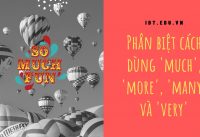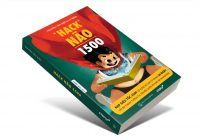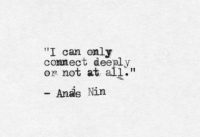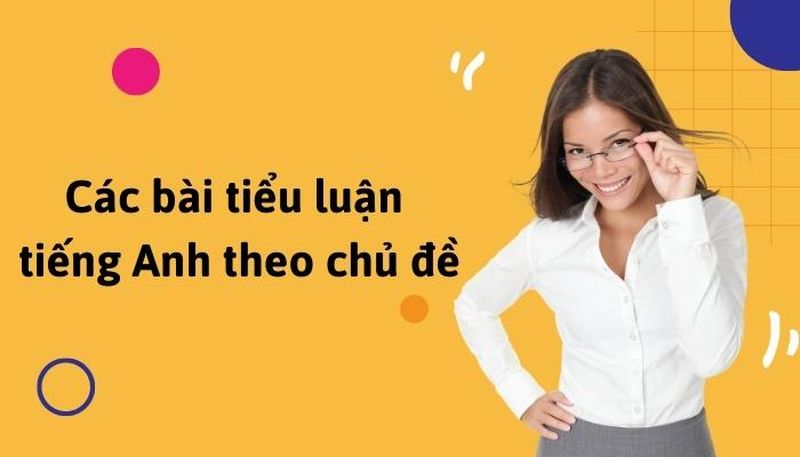Bài luận tiếng Anh theo chủ đề (Phần 4)
A visit to a zoo
The zoo is an artificial forest created by man. Though there are few trees compared with the natural forest, the animals, birds and other creatures found in the zoo must always remind us of the forest. It is indeed an interesting place to visit.
Even in the natural forest such a variety of animals, birds and other creatures cannot be found as are found in a big zoo. Animals which are not found in the forests of one country are caught in other parts of the world and brought to the zoo. The lion, for example, is not found in Malaysia; but one may see an African lion in the zoo at Johore Bahru.
Until I visited the zoo at Johore Bahru, a few months ago, I had no idea how informative a visit to a zoo might be. Though the zoo at Johore Bahru is not big, I found many kinds of interesting animals and other creatures there. Lions, tigers and other animals were moving about lazily in their cages. Some of the animals appeared to be bored, and they took little interest in the visitors. The monkeys, however. showed their natural agility. Whenever they saw a visitor, they ran towards him and begged for something to eat. I was indeed amused at their behavior. Most of them were caught in Malaysia and their variety was amazing.
Some of the birds too were very interesting to see. Their beautiful feathers and looks fascinated me. Birds are indeed one of the loveliest creations of God. A few birds are larger than many animals.
The lions and the tigers in this zoo were so docile that I could not but treat them as domestic animals like the dog and the cat. I went very close to them, but they showed little interest in me. I then began to think of how the animal or even human spirit could be broken by confinement. Confined to their cages, these animals had become spiritless. Even the sight of food did not seem to excite them much.
Then, there was the crocodile with its usual pretence of innocence. It refused to be disturbed. Heaven knows how it might have reacted if a child had fallen into its pit. However, my visit to the zoo had increased my knowledge of animals.
New words:
- informative (adj): cung cấp nhiều thông tin, có tác dụng nâng cao kiến thức
- agility (n): sự nhanh nhẹn, sự lanh lợi
- beg (v): xin, cầu xin
- fascinate (v): mê hoặc, quyến rũ
- docile (adj): dễ bảo, dễ sai khiến, ngoan ngoãn
- crocodile (adj): cá sấu châu Phi, cá sấu
The importance of the newspaper
The newspaper, today, plays a vital role in human affairs. Its importance has not been diminished by the appearance of the radio or the television. Men no longer have travel to get information. The newspaper has become the main source of information about local and foreign affairs. Though the radio and television convey important news and messages quicker than the newspaper, they seldom give the details of an incident. The newspaper, on the other hand, gives not only more details about a particular incident but it also contains more new items. This is of great importance today when political changes occur with a rapidity unknown before. Besides, the newspaper is easier to carry and it could be read at any time during the day. Further, the permanence of the printed word helps one to refresh one’s memory of certain facts and incidents reported in the past.
The importance of the newspaper has been increased greatly by the spread of education. Education sharpens one’s curiosity about events in distant lands and also makes one conscious of the necessity to maintain one’s reading habits. In both respects the newspaper appeals most, especially if one finds little time to read books.
The newspaper should, however, be read with caution, for its capacity to do harm is great. Most people believe every thing that is reported by the newspaper. As a result, the newspaper exerts a profound influence on the minds of its reader. Therefore, when some news is reported wrongly either by mistake or design, it may cause a lot of harm. On the other hand, if the policy of the newspaper is to promote the welfare of the people, it could do a lot of good. For example, it could exercise its influence to persuade the government of a country to do many things for the benefit of the people. In a country like Malaysia, where there are many races of people, the newspaper could also use its influence to promote good-will and harmony among the people. It is therefore important to know the policy of the newspaper that one reads.
In general, however, the newspaper tries to report as accurately as possible, for there are various magazines and periodicals competing with the newspaper to provide accurate information on world developments, and it is the newspaper that links us with the outside world.
New words:
- vital role (n): vai trò thiết yếu
- diminish (v): giảm bớt, thu nhỏ
- convey (v): truyền đạt, chuyển tải
- permanence (n): tính lâu dài, lâu bền, tính vĩnh cữu
- conscious (adj): có ý thức, biết được, nhận ra
- policy (n): đường lối hành động, chính sách
- accurately (adv): một cách đúng đắn, chính xác
- periodical (n): tạp chí xuất bản định kỳ
The things that I like most
There are so many things around us that one finds it hard to have a special preference for a few particular things. I, however, take a special interest in motor-car and television.
Motor-cars have always fascinated me. Since my childhood I have been travelling in motor-cars, and I have visited hundreds of places in this country. I have been to remote villages and almost all the towns, large and small. Travel has broadened my outlook on life. I have met various types of people, and my knowledge of the people and places of this country has increased greatly. If I am at home or if I am walking along a road, I feel the urge to travel as soon as I see a car.
It is because of motor-cars that I am able to do various types of work. In the morning I go to my school, a long distance away, in my father’s car. After school I go to my father’s plantation to help him in his work. Then I visit one of my class-mates and discuss our school work. Sometimes I visit the cinema, miles away. If there were no motor-cars, I would not have seen so much. Even in this small country, I would perhaps not have been able even to attend school.
The next thing that I like is television. Television helps us to see and hear some of the famous leaders of the world. We are also able to see some of the great events of the day. In addition, we can get news from all parts of the world, and listen to songs and music. Sometimes there are special programmes which are very amusing. The television programmes become more interesting on a rainy day. We can then sit in the comfort of our home and watch the television programme. Even if we cannot read the newspaper for some reason, television keeps us well informed about the latest developments in the world. In this respect, television is better than the radio because the pictures and incidents shown on television convey a better impression than only the spoken words of the radio.
I shall therefore always have a special preference for the motor-car and television.
New words:
- childhood (n): tuổi thơ ấu, thời thơ ấu
- broaden (v): mở rộng
- urge (adv): sự thôi thúc, sự thúc đẩy mạnh mẽ, sự ham muốn mạnh mẽ
My hobby
To have a hobby is to know how to spend one’s leisure moments. A hobby, besides providing an avenue of escape from boredom, can also add to one’s knowledge of human affairs. My hobby is reading.
When my day’s work is over, I sit down in the privacy of my room and read the newspaper. Reading the newspaper is like travelling round the world. As I read about the developments in the various parts of the world, I fell that I am there myself observing the incidents. I also feel that I am having contacts with many leaders and peoples of the world. This feeling is a source of pleasure to me. By reading the newspaper I have acquired a better knowledge of the world. I am aware of what scientists, economists and politicians are doing to make this world a better place to live in. At the same time, I am also aware of the activities of those who are trying to create chaos in the world.
After reading the newspaper, I take a book which requires deep concentration, such as a history book or a book on psychology. Sometimes I read a novel or a popular magazine. Through this hobby I have learned that people everywhere are the same, in all ages, and in all countries. I have also learned that the world was made not for man alone but for every creature that can feel hunger and thirst, warm and cold. It has also helped me to see not only into the most remote regions of the world today but also into the world in which our ancestors lived.
My hobby has deepened and widened my knowledge of man and his place in the universe. Reading, I think, has made men more human, broad-minded and sympathetic. It has brought me into contact with many great minds, and acquainted with the beauty of language and ideas. It has also improved my powers of expression. I have little difficulty in expressing my thoughts and feelings. Therefore, I could say that my hobby has made me a better person.
New words:
- avenue (n): đại lộ
- privacy (n): sự riêng tư, sự cách biệt
- chaos (n): sự hỗn độn, sự hỗn loạn, sự lộn xộn
- concentration (n): sự tập trung
- ancestor (n): ông bà, tổ tiên
- universe (n): vũ trụ
- acquaint (v): làm quen
The advantages and disadvantages of the cinema
Cinemas are a common sight nowadays. They are found in every town. The existence of so many cinemas reflects their popularity. They have indeed become the most popular places of entertainment.
The cinema attracts large numbers of people everyday. It is the magnet of the town. It sometimes attracts even those who do not wish to see a film.
As it is so popular, the cinema exerts a profound influence on the minds of many people, young and old. The influence is sometimes good, and sometimes it is bad. Films showing criminal activities and the sensual desires of man have caused much harm to many youths. Some youths have become criminals themselves though almost every film shows how the good always triumphs over the evil. The cinema has also caused many people to waste money. Such people have become so addicted to visiting the cinema that they see almost every film, good or bad. In this way money is wasted not only on purchasing tickets for admittance to the cinema but also on travelling and many other things.
Often, however, the cinema helps to spread knowledge. There are many films which show the activities of the various races of people living in the remote regions of the earth. Some films show how man has struggled through the centuries to make the world a better place to live in. There are also films which show the events that led to some of the important battles in the past. They are shown with so much realism that one remembers them for a long time. Such films are indeed invaluable, especially to those who are illiterate. In this respect the cinema could be regarded as a school. Even the dullest student learns many things if he sees an educational film in the cinema though he may learn nothing from his teacher or his books. Such is the effect of the film, and in many countries, educational authorities are trying to make the best use of the cinema to spread knowledge and information.
It is therefore clear that the cinema has many advantages as well as disadvantages. Often the advantages outweigh the disadvantages. Those who visit the cinema with the purpose of learning something good are sure to benefit from almost every visit to the cinema.
New words:
- entertainment (n): tiêu khiển, giải trí
- magnet (n): nam châm
- profound (adj): sâu sắc, sâu rộng
- sensual (adj): (thuộc) xác thịt, nhục dục
- triumph (v): chiến thắng, thắng lợi
- addicted (adj): say mê, nghiện
- purchase (v): mua sắm
- realism (n): chủ nghĩa hiện thực
- outweigh (v): nặng hơn, có nhiều giá trị hơn, có nhiều ảnh hưởng hơn
The importance of examinations
Life today has become so complex that examinations have come to play an important part in one’s educational career. Examinations are considered so important that most students are afraid of them.
The ability to pass an examination is indeed a valuable quality. It shows that the student is able to express his thought and ideas to a manner others can understand. It also shows that the student has acquired a certain amount of knowledge in some branches of study. Besides, the mind of a student, even if he is dull, receives good exercise when he prepares for an examination. A student’s success in an examination, therefore, helps employers and others to assess his mental or general ability.
Some people, however, argue that examinations test only a certain kind of skill. They say that many people have a good memory and a special ability to pass examinations and achieve brilliant results, though they have no capacity for original thought or imagination. But it should be realized that today the syllabuses are so extensive that a student cannot expect to pass an examination by relying entirely on his memory. The student of today must not only have a fair knowledge of the subject manner but also be able to show his intelligence and power of reasoning, especially if he is sitting for a higher examination. Therefore, a student’s ability to pass an examination must indicate some of his mental powers as well as his grasp of the subjects that he has studied.
If there were no examinations, most scholars would have been less informed than they are today. Examinations compel students to read as much as they can, and as they do so, they absorb knowledge unconsciously. Further, because of examinations; teachers have to confine themselves to the syllabuses which are aimed at imparting knowledge in a systematic manner, and thus develop mental discipline. Examinations are therefore an important part of academic studies.
New words:
- complex (adj): phức tạp, rắc rối
- acquire (v): thu được, đạt được
- assess (v): đánh giá, ước định
- argue (v): biện luận, tranh 1uận
- achieve (v): đạt được, giành được
- syllabus (n): chương trình học, đề cương bài giảng
- entirely (adv): hoàn toàn
- grasp (n): sự nắm được, sự hiểu thấu
- scholar (n): học giả
- compel (v): buộc phải, bắt buộc, thúc ép
- unconsciously (adv): không tự giác, không có ý định, không có ý thức
- impart (v): truyền đạt, kể cho hay, phổ biến
- systematic (adj): có phương pháp
A week in hospital
I had always dreaded the thought of being admitted to hospital. The peculiar smell of the hospital, the sight of deformed and critically ill persons and dead bodies in the hospital are things that I had always wished to avoid. But a serious illness sometime ago necessitated my admission to the General Hospital in Malacca.
Though I was seriously ill and required special attention, yet the knowledge that I was in the hospital made me feel miserable during the first few days. The clothes that I had to wear in the hospital were uncomfortable and the food was tasteless. At night, when all the patients were asleep, I used to wake up and think of what might happen it the dead bodies in the mortuary nearby came back to life. I also thought of the patients who might die at anytime. Sometimes I thought that I myself might not wake up from my sleep; that I might have to leave my dear parents, brothers and sisters and never return. Tears would then flow from my eyes.
From the fourth day, however, my spirits were high. The doctors and nurses assured me that I would recover completely in a few days and that I could move about in the hospital as I wished.
I now began to think of the good work that was being done in the hospital to reduce pain and suffering. Hundreds of sick people were coming to the hospital, many with serious injuries caused by various kinds of accidents, with the last hope of survival. And while many were dying, many more were returning home with smiles on their faces. Working every minute and sacrificing their own pleasures and pastimes, the doctors, nurses, hospital assistants and all the other staffs were doing their utmost to save another life. Their humanity impressed me deeply.
I now realised what an important role the hospitals were playing in our daily life, and the disgust that I fell on the first few days was gone. After being in the hospital for a week, I returned home with a better knowledge of human misery and sacrifice.
New words:
- dread (v): kinh hãi, kinh sợ
- peculiar (adj): lạ kì, riêng biệt
- critically (adv): nguy kịch, trầm trọng
- necessitate (n): bắt phải, đòi hỏi phải, cần phải có
- tasteless (adj): vô vị, nhạt nhẽo
- mortuary (n): nhà xác
- assure (v): quả quyết, cam đoan
- sacrifice (v): hy sinh
- disgust (n): sự ghê tởm, sự kinh tởm
A frightening experience
Discuss “fire is a good servant but a bad master”
How man first learnt to use fire is still unknown, but it is known that even the most primitive man, centuries ago, found it to be of great service to him as it is to us today. Man, in his early days, did not cook his food. He ate everything raw, including meat and fish. But the discovery of fire changed his eating habits completely. He now learnt to cook his food; and, when he found that cooked food was more delicious, fire became an important thing in his life.
Fire also gave the early man warmth and light. Even in his scanty clothes he could keep himself warm in his cave on rainy or cold nights. His cave was no longer dark and he could move about freely at night. Further, fire gave him protection from wild beasts, and his life was more secure than it was before. In fact, fire, like water and air, became indispensable to man; and, today, we use fire for a diversity of purposes. We use it even to operate machinery to produce goods.
But fire has to be kept under strict control, for its capacity to destroy his great. Once it is out of control, it will destroy life and property at tremendous speed and the world has lost things worth millions of dollars because of fire. And, people often use fire’s enormous capacity to great advantage. They use it to burn thousands of acres of forest and grow crops: As a result, we now find green fields where once there were forests.
On the other hand, fire has been used by men, especially of the modern age, to destroy men. In every human battle in the past fire was used to destroy the enemy. Even today, thousands of people.in many parts of the world are being destroyed by fire; and, when furious men try to make the best use of fire’s extreme anger, misery is hard to avoid. lt then reigns supremes. Innocent people, young and old, must die in thousands. It is, therefore, true to say that, “fire is a good servant, but a bad master”.
New words:
- scanty (adj): ít ỏi, thiẽu, không đủ
- indispensable (adj): tuyệt đối cần thiẽt, không thể thiếu được
- diversity (n): tính đa dạng
- out of control: vượt ngoài tầm kiểm soát
- tremendous (adj): ghê gớm, kinh khủng, khủng khiếp, dữ dội
- acre (n): mẫu Anh (khoảng 0.4 hecta)
- furious (adj): giận dữ
- supreme (adj): tột đỉnh, tối cao
An accident I have witnessed
One rainy day last year, while I was returning home from Mersing, a town in the east coast of Malaysia, I witnessed an accident which I shall never forget.
I was returning home in my father’s car. It was raining heavily and the road could not be seen clearly. My father, an old man, was driving slowly to avoid an accident. The journey, therefore, seemed unusually long, and I began to feel tired. Then, suddenly, a small car, running at great speed, overtook our car. My father was shocked at the recklessness of the driver of that car. We could not count the number of persons in that car, but were sure that there were at least five, including two children. My father at once predicted that tragedy would befall the occupants of the car. After this prediction I began to grow impatient. I did not wish to see any ugly scene resulting from an accident. Though the car had gone quite far its rear lights would still be seen.
In the distance there was a narrow bridge. Looking at the way the car was being driven, I too was now sure that an accident would occur and sure enough it did occur. This is how it happened.
A lorry was coming from the opposite direction. It was already on the bridge. The driver of the small car, however, could not slow down in good time. He lost control of the car which skidded and plunged into the swollen river. Somehow, the driver managed to slip out of the car, but the others were doomed. When we arrived at the bridge, we were touched deeply by what we saw. Two children were struggling in the river and we could do nothing to save them. Their mother, as we came to know later, was at the bottom of the river, trapped in the car, and they were swept away by the rush of the current and drowned. The driver, and father of the children, began to cry piteously for the wife and children he had lost so suddenly. It was indeed a very touching scene and I shall never forget this day.
New words:
- witness (v): chứng kiến, làm chứng
- overtake (v): (overtook- overtaken): bắt kịp, vượt
- recklessness (n): tính thiếu thận trọng, tính hấp tấp, tính khinh suất, tính liều lĩnh
- tragedy (n): thảm kịch, bi kịch
- occupant (n): người sở hữu, người sử dụng
- skid (v): trượt xe
- swollen (adj): dâng lên cao; phình ra
- doomed (adj): phải chịu số phận bi đát
- struggle (v): vùng vẫy, vật lộn
- piteously (adv): thảm thương, đáng thương hại
The importance of good roads in a country
Good roads are essential for the development of a country. The Romans realised this centuries ago, and wherever they established themselves, , they tried to improve the roads there. Today, the governments of all countries in the world are building more and more roads to gain access to the remotest regions of their countries.
Roads link towns and villages and enable the people of one place to communicate with the people of another place. When food is scarce in one place, it can be brought from another place without much difficulty. Even things which cannot be produced in one region can be brought from another region where they are produced in abundance. The invention of motor-vehicles has made it easy to transport goods from place to place. But these vehicles require good roads to travel quickly, and the better the roads the more goods can be transported from one place to another in a very short time. Thus, trade is improved.
Further, good roads help people to travel easily to places where they can work and develop their lands and industries. In Malaysia, for example, the improvement of roads has made it easy for skilled workers from the towns to work in remote villages. The people of the villages, on the other hand, have been able to learn much from the towns. As a result, there has been a lot of improvement in this country in all spheres of activity.
Finally, in times of war good roads help armies to move about without difficulty. Sometimes, a country is defeated because its army is not able to reach a place in good time owing to bad roads. Even the police may not be able to reach a place where there is some trouble if the roads are bad. For all these reasons: it is always necessary for a country to have good roads.
New words:
- establish (v): thành lập, thiết lập, kiến lập
- scarce (adj): khan hiếm
- abundance (n): nhiều, dư dật, giàu có, phong phú
- sphere (n): lĩnh vực, phạm vi, tầm ảnh hưởng
- defeat (v): đánh bại, làm thất bại
Life in the village
The village has always been known to be a place of peace and quiet. The scattered houses among hundreds of plants and trees at once indicate the lack of activity in the village.
The workers in the village leave their homes early in the morning to work in the plantations or towns nearby. Some have their own plantations, and some make certain articles in their homes to sell them in the towns. A few of the villagers, including women, go out to catch fish in the streams and rivers found in the village. Though the people of the village do not usually earn much, yet they seem to be contented.
In the afternoon, most of the villagers are at home. Some of them take a nap after lunch; some work in their small gardens, and some visit the small shops in the village. In various parts of the village children may be seen playing the popular games of the village. Occasionally, a cyclist passes by.
Then, in the evening, the villagers meet one another. Some play cards and other types of games peculiar to the village. Some talk about the day’s incidents in the village, and those whose minds go beyond the village discuss world events.
In almost every village there is a headman whose duty is to settle quarrels among the villagers and maintain peace in the village. Whenever there is a dispute, the villagers go to the headman who is held in such esteem that his word has the force or law. In this way the villagers have developed their own simple laws, and the crimes of cities are almost unknown to the people of the village.
During a festival, the whole village is alive with activities. Everyone is in a happy mood and plays his part to make the festival a success. This is the time for the men, women and children of the village to wear their best clothes and the village is full of colour. These simple ways of life in the village, however, must soon change. Progress in science and education has already begun to affect the outlook of the people in the village, and hundreds are leaving the village to seek their fortunes in the towns and cities.
New words:
- scattered (adj): lác đác, lưa thưa, rải rác
- article (n): hàng, vật phẩm, đồ đạc
- contented (adj): thoả mãn, mãn nguyện
- nap (n): giấc ngủ trưa
take a nap after lunch: ngủ một giấc sau bữa ăn trưa
- cyclist (n): người đi xe đạp
- headman (n): trưởng làng, già làng, tù trưởng
- dispute (n): cuộc bàn cãi, cuộc tranh luận
- esteem (n): sự kính mến, sự quý trọng
- mood (adj): tâm trạng, tính khí, tâm tính
- fortune (n): vận may
My favourite author
My favourite author is William Shakespeare, a man who has written enough for immortality.
Though a few hundred years have elapsed since the death of Shakespeare and volumes have been written on the life and work of this great writer, his early life still remains a subject for speculation and conjecture. It is generally believed that Shakespeare had very little schooling. Yet his keen intellect and mastery of language have earned for him the appreciation and applause of the literary world.
Shakespeare’s fame, ‘I think, originates from his ability to identify his readers with the characters in his stories. In most of his stories we find reflections of our own experiences. This shows strikingly that Shakespeare had an insight into ‘human nature and the problems of life. His tragedies such as “Macbeth’ and “Hamlet” clearly show his deep knowledge of the human mind. Man’s ambition, desperation, sorrows, frustrations and hopes are dealt with in these tragedies with such skill that the reader himself experiences all the mental conflicts and emotions, and thus gets a better idea about human nature. With equal skill, Shakespeare deals with man’s joys and pleasures in all his comedies. His comedies like, “Twelfth Night” and “As You Like It,’ are a delight to read. Through the characters in his stories Shakespeare conveys his views on life and the world. Most of his characters, such as Hamlet, are vehicles for moral instruction. Man’s nature is the theme of all his writings. By a skillful combination of words and situations, he reveals the worst as well as the best in man. His choice of words is masterly and many of his phrases are literary gems. As man’s nature is his theme, what he wrote years ago remains true even today, and it will remain so till the end of time. It is for all these reasons that I enjoy reading Shakespeare.
However, I do enjoy reading the works of other writers too, such as those of Charles Dickens and Jane Austen. But they do not give the satisfaction that Shakespeare gives. I find Shakespeare’s stories so interesting that I have read the same stories several times in last few years; and, every time I read the same story, I learn something new about human nature. Shakespeare was indeed a genius.
New words:
1 favourite (adj): được mến chuộng nhất được ưa thích nhất
- immortality (n): bất tử bất diệt, bất hủ, danh tiếng muôn thuở
- elapse (v): (nói về thời gian) trôi qua
- speculation (n): sự nghiên cứu, sự suy xét
- conjecture (n): sự phỏng đoán
- applause (n): sự hoan nghênh, sự tán thưởng
- ambition (n): hoài bão, tham vọng
- frustration (n): sự làm thất bại, tâm trạng vỡ mộng
- conflict (n): sự xung đột, cuộc xung đột
- theme (n): đề tài, chủ đề
- combination (n): sự kết hợp, sự phôí hợp
- reveal (v): bộc lộ, biểu lộ, khám phá
- masterly (adj): rất giỏi, bậc thầy, tài tình
- gem (n): đá quý, viên ngọc
- genius (n): người thiên tài, người anh tài, bậc kỳ tài
A frightening experience
I am not one who is frightened easily; but I must admit that one night I saw a figure that struck terror into my heart.
It was a moonlit-night. I was returning home on foot from a town a few miles away. That was the first night in my life that I was out alone. The road along which I was walking was not used much at night. Even during the day, it was used only by those who worked in the rubber and banana plantations long that road. As I was walking, I could hear the noises made by squirrels, insects and owls. Creatures that love the night world such as bats were very active, and there were hundreds of shadows. All these did not, however, frighten me. I held a stick in my hand and moved rapidly towards home for my dinner. Then, suddenly, I caught sight of an old lady, a short distance away. Her head was covered with a white cloth, and she was waving to me.
Curious to know why she was there at that time of the night, I stopped for a while. As I stood there, however, vague memories of stories about ghosts began to come back to my mind. I was soon gripped with fear and took to my heels. I ran as fast as I could, and when I reached home I could hardly speak.
On the next day, however, I visited that place again to make sure that the woman was indeed a real person and not a ghost. But I could find no footprints there. Only a banana plant stood there with its leaves moving in the breeze. I realised then that it was the banana plant with its leaves moving in the breeze that looked like a woman waving her hand. I had indeed made a tool of myself; but after the previous night’s experience, this discovery was small relief to me.
New words:
- frighten (v): làm hoảng sợ, làm sợ
- moon-lit night: đêm sáng trăng
- vague (adj): mơ hồ, lờ mờ, mập mờ
- breeze (n): gió nhẹ
- previous (adj): trước
The value of higher education
Since the dawn of civilization, great thinkers like Plato and Aristotle have been doing their utmost to spread education to the remotest corners of the earth. It is realised that education develops the intellect and enables one to discriminate between the good and the bad. More and more universities and other education institutions are therefore being opened in all parts of the world to provide higher education.
In almost every country today, there is a lot of unemployment. Only those who have received a high standard of education are able to secure high positions in society and in the various professions. It has therefore become necessary for many people to attend institutions or higher learning to improve their prospects of employment.
Higher education confers many other benefits. It broadens the mind and increases one’s powers of thinking, reasoning and imagination. Further, it makes one more sympathetic towards others. It helps us to understand the problems and weaknesses of man, and we become less suspicious of strangers and others. We also become more thoughtful of the feelings and needs of others. As a result, we are able to mix better with people. Besides, higher education helps us greatly in deciding what is right and what is wrong, what is true and what is false. Therefore, people can hardly deceive or mislead us. Higher education also teaches us how to spend our leisure moments. We learn to make the best use of our spare time. Even during old age we know how to keep ourselves occupied. Again, higher education develops self-confidence. We learn to have faith in our own abilities. As a result, we are able to meet and talk with people anywhere. All these qualities, acquired through higher education, combine to make one a leader among men. One is able to live a better life in society.
The benefits of education are therefore many, and everyone should try his best to acquire the highest of education, either by attendance at an educational institution or by private studies.
New words:
1 civilization (n): nền văn minh
- discriminate (v): phân biệt
- institution (n): cơ quan, tổ chức
- suspicious (adj): nghi ngờ, tỏ ra có sự nghi ngờ
- mislead (v): làm cho mê muội, làm cho lạc đường, lạc lối
- self-confidence (n): sự tự tin, lòng tự tin
- combine (v): phối hợp, kết hợp









